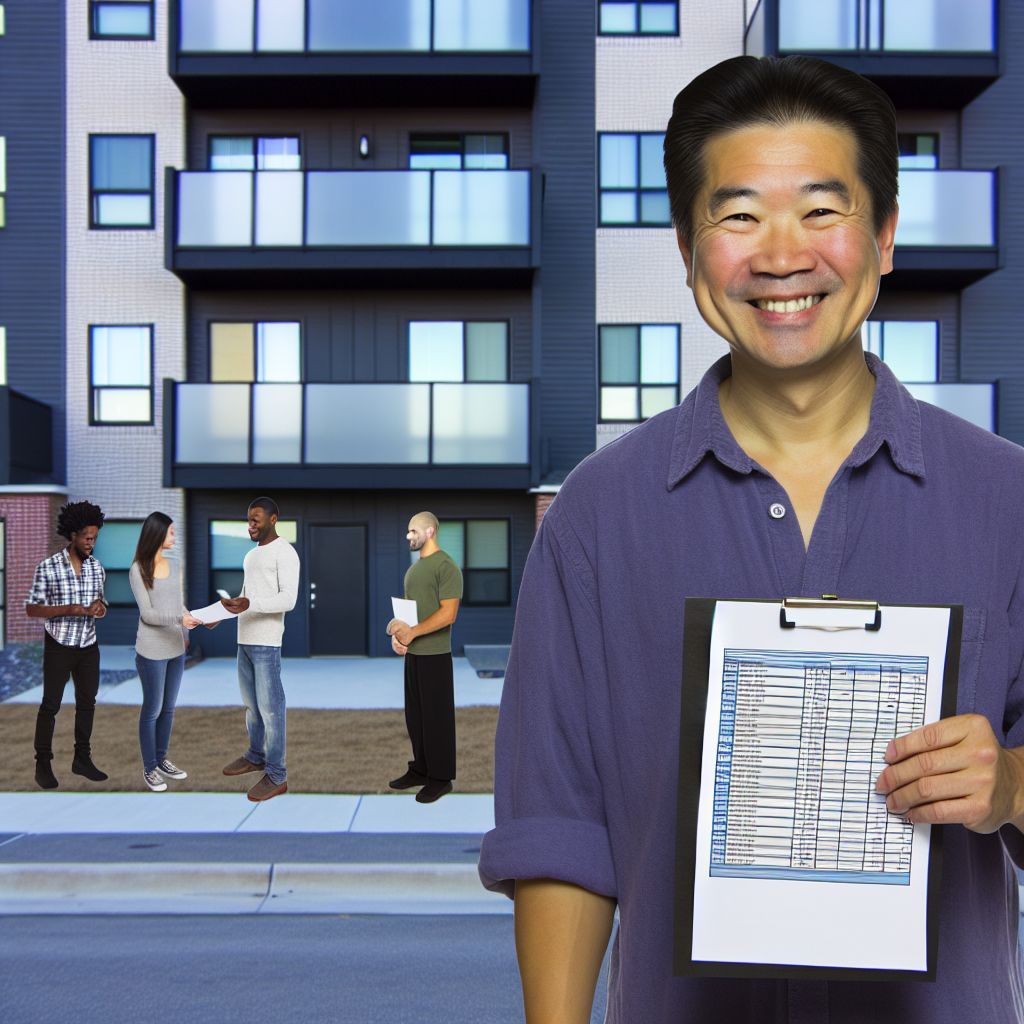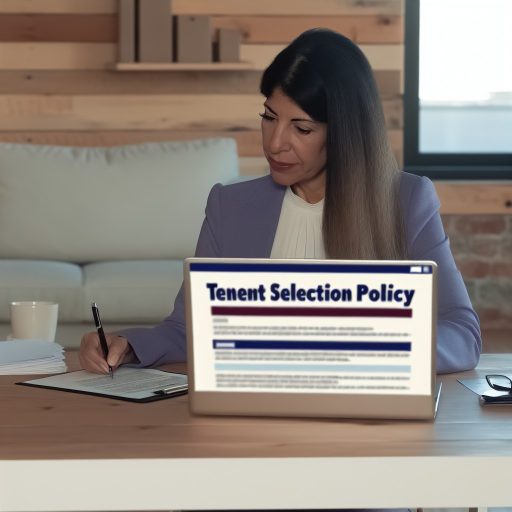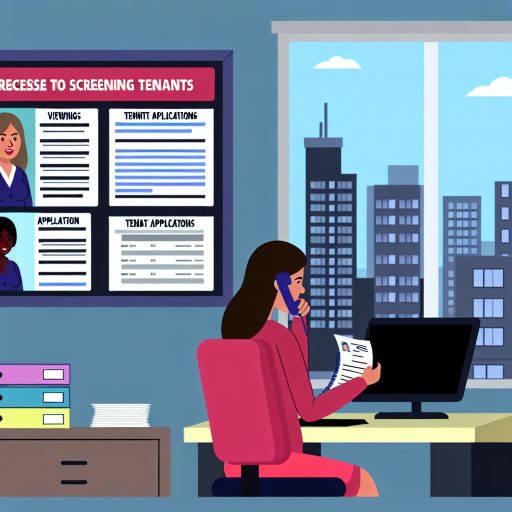Establishing Clear Lease Agreements to Minimize Misunderstandings
Understanding the Importance of Lease Agreements
Lease agreements serve as the foundation of the landlord-tenant relationship.
They define the rights and responsibilities of each party.
Clear agreements help prevent future disputes and misunderstandings.
Key Elements of a Comprehensive Lease Agreement
Every lease agreement should include specific and crucial details.
First, outline the rental amount and due dates clearly.
Second, include information on security deposits and their conditions.
Additionally, specify the lease duration and renewal terms explicitly.
Moreover, describe the responsibilities for maintenance and repairs.
Lastly, outline terms regarding pets and additional occupants.
Communicating Expectations Effectively
Effective communication builds trust between landlords and tenants.
Establish open lines of communication from the beginning.
Regular check-ins during the lease term can resolve issues early.
Encourage tenants to voice concerns without hesitation.
Utilizing Legal Assistance
Consider consulting a legal professional when drafting lease agreements.
Legal experts ensure compliance with local laws and regulations.
They can also provide guidance on specific clauses and language.
Ultimately, legal assistance can enhance the clarity of your lease agreements.
Reviewing and Updating Lease Agreements
Regular reviews of lease agreements are essential for landlords.
Update them to reflect changes in laws or rental practices.
Furthermore, discuss any amendments with current tenants to ensure understanding.
Such updates can prevent future conflicts and promote transparency.
Conducting Thorough Tenant Screening to Ensure Reliability
The Importance of Tenant Screening
Tenant screening is a critical process for landlords.
This practice helps ensure reliable and trustworthy tenants.
Additionally, it protects your property investment.
Ultimately, this process promotes consistent rental income.
Creating a Comprehensive Application Process
Start by developing a detailed rental application.
Include sections for personal, employment, and financial information.
Ask applicants to provide rental history and references.
This information gives insights into their reliability.
Verifying Income and Employment
Request proof of income through pay stubs or tax returns.
Contact their employer for verification of employment status.
This helps assess their ability to make rental payments.
Checking Credit History
Obtain a credit report to evaluate financial responsibility.
A good credit score indicates a higher likelihood of timely payments.
However, be aware of potential discrepancies in reports.
Always follow legal requirements for credit checks.
Conducting Background Checks
Run a criminal background check on potential tenants.
This step helps identify any red flags in their history.
Evaluate their rental history for any past evictions.
These measures ensure safety for you and your community.
Requesting References
Ask prospective tenants for personal and professional references.
Contact these references to gain additional insights.
This can help you gauge the applicant’s character.
Setting Clear Policies
Clearly outline your screening criteria for all applicants.
Communicate these policies to ensure transparency.
This includes standards for credit scores and rental history.
Establishing definable standards promotes fairness.
Integrating Technology in Screening
Utilize property management software for tenant screening.
Many platforms offer automated background checks and credit reports.
This can save you time and ensure thorough evaluations.
Following Fair Housing Laws
Always adhere to local and federal fair housing laws.
This protects you from discrimination claims during screening.
Educate yourself on these regulations and implement them.
Leveraging Technology for Efficient Rent Collection and Communication
Embracing Online Payment Platforms
Landlords can simplify rent collection by using online payment platforms.
These platforms offer convenience for both landlords and tenants.
Tenants appreciate the ability to pay from anywhere at any time.
Moreover, landlords can automate recurring payments, reducing manual work.
Platforms like PayPal, Venmo, and Rentec Direct enhance efficiency.
Using these tools minimizes late payments significantly.
Implementing Tenant Communication Apps
Effective communication is key in a landlord-tenant relationship.
Communication apps streamline interactions between landlords and tenants.
Platforms such as Slack or WhatsApp can foster quick responses.
This ensures tenants feel valued and appreciated.
Moreover, clear communication can help prevent misunderstandings.
Utilizing Property Management Software
Property management software can revolutionize how landlords operate.
These tools help track rent payments, maintenance requests, and lease agreements.
Landlords can access important data from anywhere at any time.
Software like Buildium or AppFolio simplifies overall management.
Moreover, they provide crucial analytics for better decision-making.
Incorporating Maintenance Request Portals
Offering online maintenance request portals enhances tenant satisfaction.
Tenants can submit requests with ease, detailing issues promptly.
Landlords can then prioritize and manage repairs efficiently.
This proactive approach reduces potential disputes and dissatisfaction.
Adopting Digital Leasing Solutions
Digital leasing solutions streamline the rental process for both parties.
Landlords can prepare and sign leases electronically.
This saves time and allows for a smoother onboarding experience.
Services like DocuSign ensure agreements remain legally binding.
Digital solutions lead to a more organized documentation process.
Enhancing Marketing Efforts with Technology
Leveraging technology for marketing can attract quality tenants.
Utilize social media and property listing websites effectively.
Platforms like Zillow and Facebook can increase property visibility.
Additionally, high-quality photos and virtual tours can enhance interest.
Engaging content can make listings stand out in a competitive market.
Explore Further: Tenant Screening Process For Reliable Long-Term Real Estate Investments
Implementing Regular Property Maintenance to Retain Tenant Satisfaction
The Importance of Regular Maintenance
Regular maintenance keeps properties in top condition.
This practice helps avoid costly repairs in the future.
Moreover, it enhances tenant satisfaction and retention.
Satisfied tenants often renew their leases more willingly.
Creating a Maintenance Schedule
Establish a detailed maintenance schedule for your properties.
This schedule should cover all aspects of property upkeep.
Include tasks like HVAC inspections and plumbing checks.
Each task should have clear timelines and responsibilities.
Utilizing Technology for Maintenance Management
Consider using property management software for maintenance tracking.
These tools can automate maintenance requests from tenants.
They can also remind you of upcoming maintenance tasks.
This ensures that nothing falls through the cracks.
Conducting Regular Inspections
Regular property inspections are crucial for identifying issues.
Schedule inspections at least twice a year.
During inspections, check for signs of wear and tear.
Address any concerns immediately to prevent escalation.
Encouraging Tenant Feedback
Encourage tenants to provide feedback on property conditions.
Create a simple system for submitting maintenance requests.
Be responsive to their concerns and act promptly.
This demonstrates that you value their input and well-being.
Building a Trusted Maintenance Team
Develop relationships with reliable maintenance professionals.
Choose contractors who have a proven track record.
When repairs are needed, prompt and quality work matters.
This strengthens tenant trust and satisfaction significantly.
Promoting a Clean and Safe Environment
A clean property attracts positive reviews from tenants.
Regularly schedule deep cleaning and landscaping services.
Provide a safe environment to make tenants feel at home.
Safety features like smoke detectors and secure entrances are vital.
Uncover the Details: Tenant Screening Vs. Tenant Selection: What Property Managers Should Know
Creating a Positive Tenant Experience to Encourage Long-Term Leasing
Understanding Tenant Needs
To create a positive tenant experience, start by understanding tenant needs.
Listen actively to their feedback and concerns during the leasing process.
Conduct regular surveys to assess tenant satisfaction.
Utilize this information to make informed decisions about property improvements.
Effective Communication
Maintain open lines of communication with your tenants.
Respond promptly to inquiries and requests for maintenance.
Consider implementing a tenant portal for easy communication.
This fosters a sense of community and trust among tenants.
Property Maintenance
Regular property maintenance enhances the overall tenant experience.
Address maintenance issues quickly to keep tenants satisfied.
Schedule periodic inspections to identify potential problems early.
Providing a well-maintained living environment encourages tenant retention.
Community Building
Encourage a sense of community among tenants.
Organize social events or gatherings to foster relationships.
Provide common spaces where tenants can interact and socialize.
A strong community connection can lead to longer lease agreements.
Flexibility in Lease Terms
Offer flexibility in lease terms to accommodate tenant needs.
This might include options for lease extensions or reduced penalties for early termination.
Flexibility shows tenants you value their situation and encourages loyalty.
Incentives for Long-Term Leasing
Consider offering incentives for tenants to stay longer.
This could include rent discounts for lease renewals.
Offering upgrades or improvements can also attract tenants to extend their leases.
Incentives make tenants feel appreciated and valued.
Regular Check-Ins
Conduct regular check-ins with tenants to gauge their satisfaction.
Simple calls or emails can help you stay engaged with them.
These check-ins can lead to improved tenant relationships and retention rates.
Responding to issues early demonstrates commitment to tenant well-being.
Learn More: Effective Tenant Screening Strategies For Property Managers In The USA

Setting Competitive Rental Prices through Market Research and Analysis
Understanding the Local Market
Start by researching your local rental market.
Analyze rental prices in your area.
Use online platforms to compare listings nearby.
Visit properties similar to yours for competitive insights.
This helps identify price trends and tenant preferences.
Gathering Data from Reliable Sources
Utilize multiple sources for accurate data collection.
Look into real estate websites, local newspapers, and market reports.
Consider talking to real estate agents for expert insights.
Incorporate data from online rental platforms for comprehensive analysis.
Compile this information to understand pricing dynamics.
Adjusting for Property Features and Location
Evaluate the unique features of your property.
Consider amenities like pools or parking spaces.
Location plays a significant role in rental pricing.
Properties near schools, parks, or public transport attract higher rates.
Adjust your pricing to reflect these additional values.
Monitoring Market Changes Regularly
Stay updated on market fluctuations.
Monitor seasonal trends affecting rental demand.
Adjust your pricing strategy to reflect these changes.
Regularly review competitor rates and occupancy levels.
This knowledge helps to maintain a competitive edge.
Setting a Competitive Yet Profitable Price
Find a balance between attractiveness and profitability.
A competitive price attracts more potential tenants.
However, ensure it covers your costs and offers a positive return.
Regular adjustments may be necessary to reflect market shifts.
Consider offering incentives if demand is low.
Discover More: Best Practices For Managing Tenant Payments And Avoiding Late Rent Issues
Building Strong Relationships with Tenants for Increased Retention
Communication is Key
Regular communication enhances tenant satisfaction.
Effective communication builds trust and transparency.
Consider using multiple channels for updates.
Email, texts, and phone calls are effective options.
Encourage tenants to voice their concerns promptly.
Understanding Tenant Needs
Get to know your tenants personally.
Understanding their unique needs promotes loyalty.
Ask about their preferences regarding the property.
Offer solutions that cater to their expectations.
This practice reinforces their decision to rent from you.
Creating a Welcoming Environment
A welcoming atmosphere enhances tenant experiences.
Ensure common areas are clean and well-maintained.
Consider hosting community events to foster connections.
These interactions create a sense of belonging.
Additionally, recognize tenant achievements for encouragement.
Responding to Maintenance Requests
Responding quickly to maintenance requests shows commitment.
Prompt attention to issues increases tenant trust.
Establish a straightforward process for reporting problems.
Use online platforms to manage requests efficiently.
Regularly follow up after repairs to ensure satisfaction.
Implementing Lease Renewal Incentives
Incentives boost lease renewals significantly.
Consider offering discounts for long-term tenants.
Provide upgrades or amenities as part of renewal deals.
Such perks encourage tenants to stay longer.
Clearly communicate the value of renewal options.
Building Community Connections
Encouraging tenants to connect fosters a community vibe.
Create community boards for sharing information.
Introduce regular networking activities for tenants.
A strong community leads to higher retention rates.
Utilizing Flexible Payment Options to Accommodate Diverse Tenant Needs
Understanding Tenant Preferences
Each tenant has unique financial situations.
Understanding these preferences helps landlords attract quality renters.
Flexible payment options can minimize late payments.
Moreover, they help maintain positive tenant relationships.
Offering Multiple Payment Methods
Providing various payment methods increases convenience for tenants.
Consider offering online payment portals for ease of use.
Additionally, accept payments via checks or money orders.
This approach accommodates those without online banking.
Implementing Payment Plans
Some tenants may struggle to pay their rent in full.
Consider setting up a payment plan for those in need.
This can help tenants manage their budgets better.
Furthermore, it can ensure timely partial payments.
Encouraging Autopay Options
Autopay can simplify the payment process for tenants.
Encourage tenants to enroll in autopay to avoid missed payments.
This option ensures rent is deducted automatically each month.
As a result, it reduces the risk of late fees for landlords.
Adapting to Economic Changes
Economic shifts can impact tenants’ ability to pay rent.
Stay informed about local economic conditions and trends.
Consider adjusting payment terms during difficult times.
This flexibility can lead to tenant retention.
Communicating Clearly with Tenants
Clear communication fosters trust between landlords and tenants.
Discuss payment options openly during the rental application process.
This ensures tenants understand their responsibilities.
Additionally, it allows them to voice any concerns.




